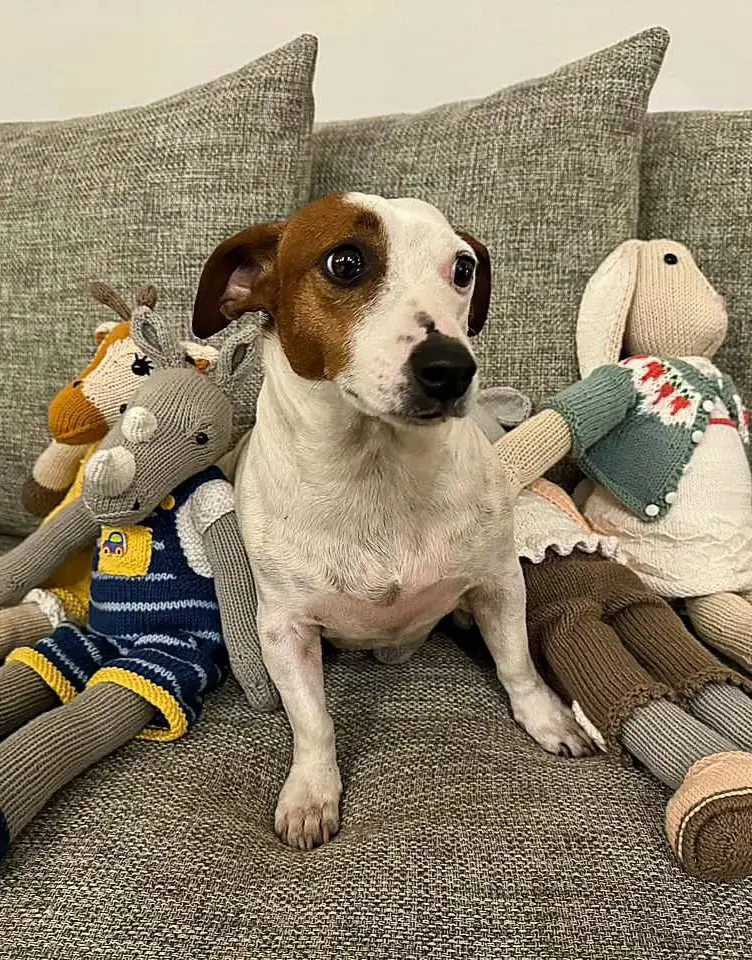Why Is My Dog Eating Dirt?
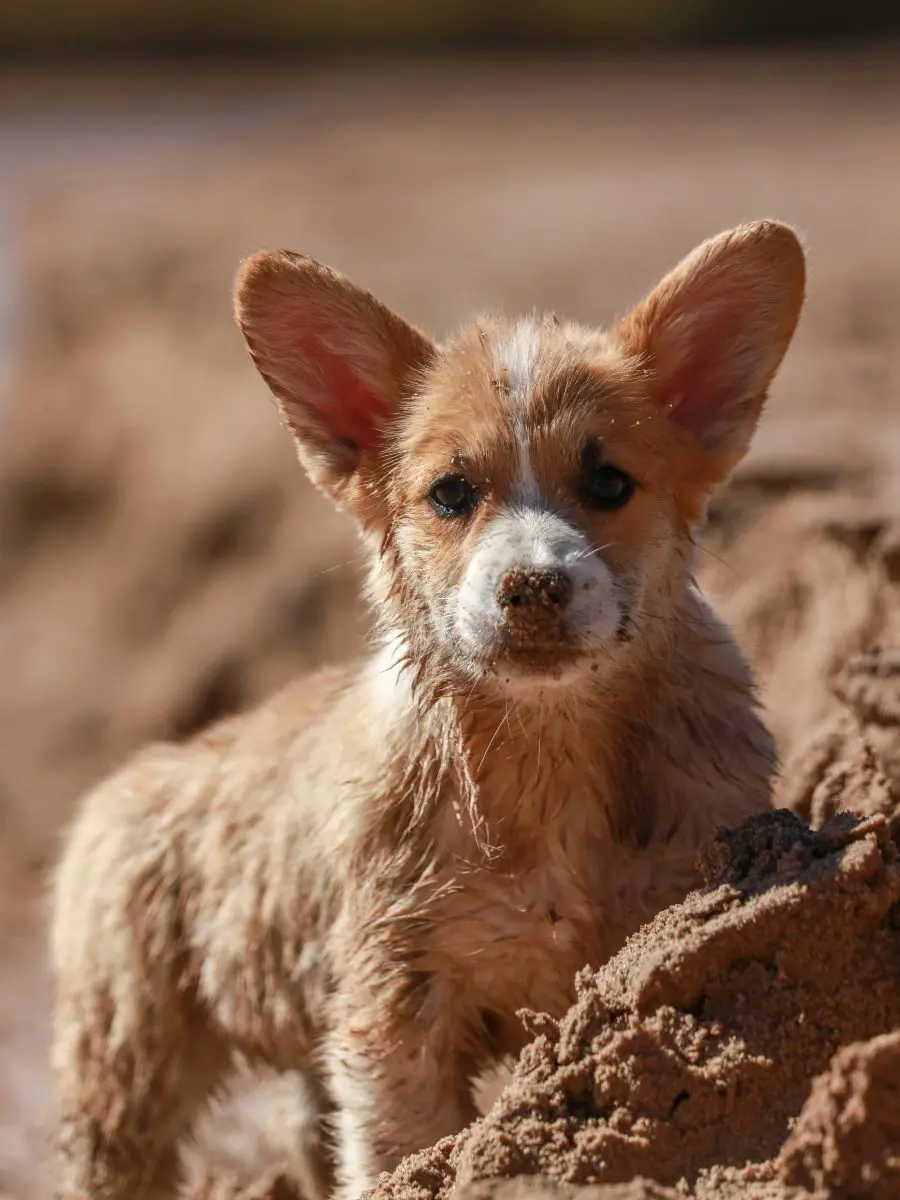
When dog owners catch their furry friends chomping on dirt, they normally get perplexed and anxious about whatever might have prompted their lovely pets to do so. It is not strange for an animal to exhibit some behavioral changes, but when this change entails eating the soil, then another bell will ring.
This might appear normal at face value but might be hiding some behavior or health issues in the background. Dogs have many motives for such actions, including hunger, idling, being hunted, curiosity, and others.
Reasons Why Dogs Eat Dirt
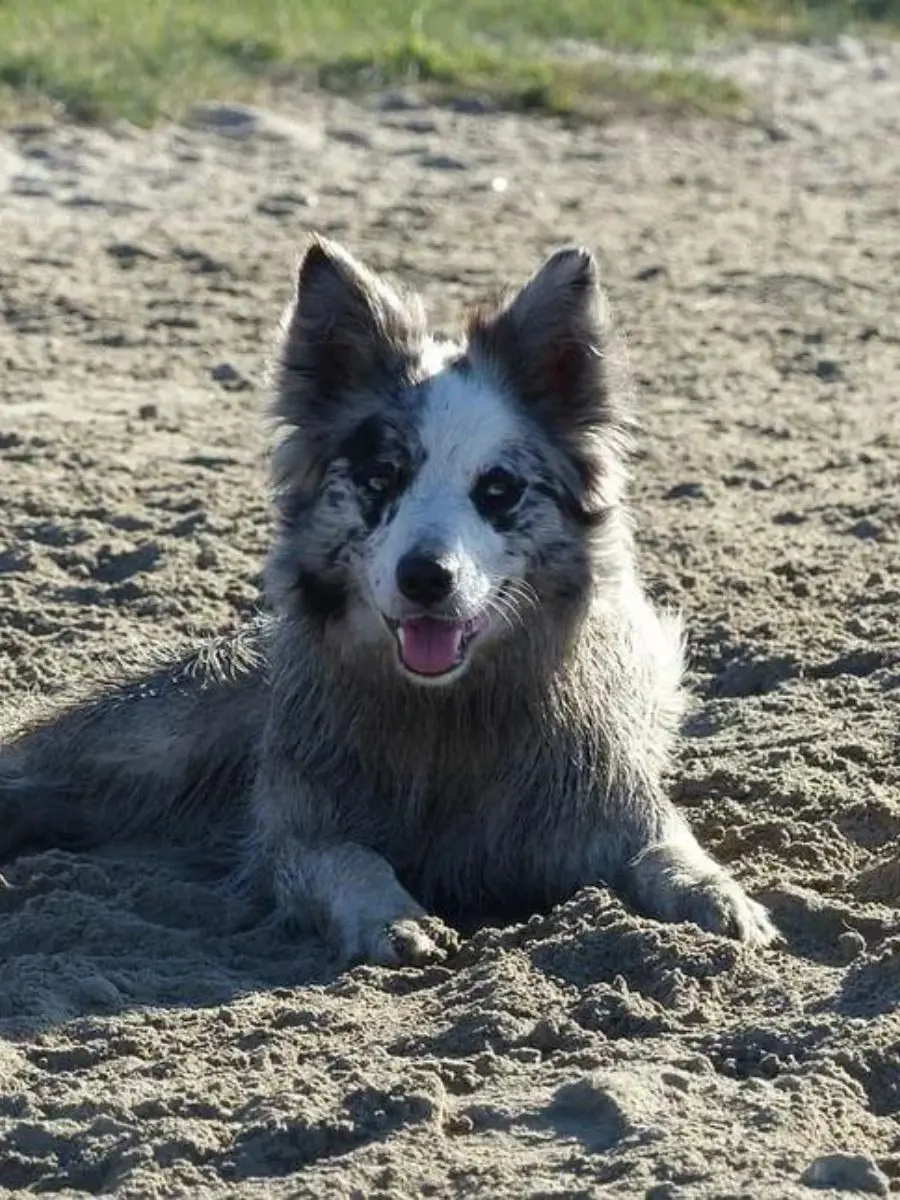
Dogs usually eat dirt for various reasons, from the simplest to the most serious ones. Some dogs are attracted to dirt and tend to taste whatever is around them.
Other dogs do it to complement a diet that lacks certain important elements. Behaviors such as boredom or worry can also cause this weird eating pattern.
A few medical disorders also exist that may turn a dog toward pica, an appetite disorder whereby dogs seek things other than food, such as dirt. These causes are quite important to know in detail for the management of behavior and the general health and well-being of your dog.
Nutritional Deficiencies
One of the most common reasons dogs eat dirt is because of a lack of nutrition. Being carnivores, they are always on the lookout for whatever missing nutrient, iron or zinc, etc., all minerals that may be in short supply, causing them to stalk the soil on walks.
Inadequate diets, whether unbalanced or of poor quality, can also cause deficiencies that drive this behavior. For example, dogs crave the earthy taste of dirt due to their body's need for trace minerals.
A balanced diet with all the essential elements present in the body can most often avoid this. In the case of nutritional inadequacy, it is always best to consult your veterinarian for dietary advice and proper supplementation.
Behavioral Issues
Other behavioral causes of dogs eating dirt include boredom, tension, or worry. Dogs left alone for long periods or that do not get enough mental stimulation can develop obsessive behavior, such as eating dirt.
This may also result from changes in the environment, like getting a new pet, moving, and changing their schedule. Such dogs, especially those with cases of separation anxiety, can result in eating strange items for comfort. This and similar issues require more mental and physical stimulation and attention that includes a behaviorist or professional dog trainer if necessary.
Curiosity and Exploration
Curiosity is one of the natural characteristics of any dog, as witnessed by every dog owner through their licking behavior, especially in pups. Dogs may eat dirt due to pure curiosity about its taste, texture, or smell.
Through investigation, dogs can learn a great deal about their environment, especially if the dirt smells interesting or has a different texture than what they are used to. This can be an innocuous tendency to indulge sometimes but keep an eye on your dog so it doesn't become habitual or result in the ingestion of hazardous chemicals.
Medical Conditions
Pica behavior can be found in dogs with medical conditions associated with anemia, thyroid, or gastrointestinal problems. It leads them to eat dirt and can be related to deeper medical issues.
For example, dogs with stomach problems may eat dirt to soothe their stomachs, while others suffering from iron deficiency might do the same thing. Thyroid abnormalities may also lead to odd eating habits.
If your dog has abrupt, chronic, or combined symptoms like lethargy and weight reduction, it is important to get it examined by a veterinarian for a detailed check.
Instinctual Behavior
Some dogs eat dirt because of an instinct derived from their wild ancestors. Perhaps the wild dogs and their ancestors used to consume some earth to obtain minerals and good bacteria or to digest the food better.
Such instincts may still exist in domesticated dogs, causing them to eat dirt when not necessary. Moreover, they might like the taste or texture of soil because it evokes memories from their natural past.
Although generally innocuous, if your dog reaches excessive amounts of this behavior, make sure they are getting all their nutritional needs met and consider restricting their access to dirt.
Health Risks Of Eating Dirt
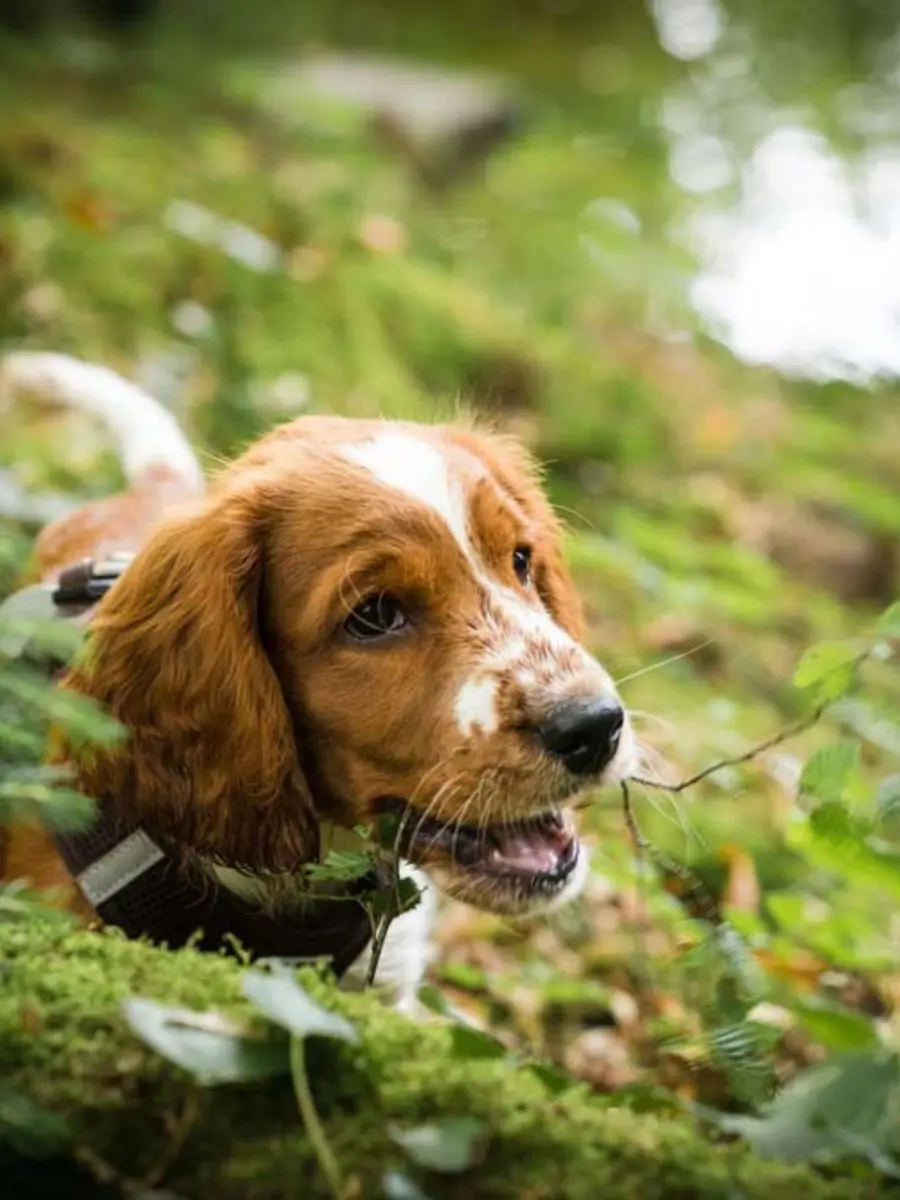
People with pets must learn about the health risks involved if they are pet owners who are wondering if soil can hurt their pets or even simply if their pets are eating dirt. Eating mud affects their wellness differently.
Consuming a small amount of dirt is unlikely to cause any serious damage, but if you are habituated or consume tonnes daily, then this can lead to serious health issues. In huge amounts for a long time, it may cause tooth problems or indigestion; combined with various other substances, you will not see blockages in the digestive system.
Consequently, all dog owners need to know of these hazards so that they can help avoid this type of behavior and guarantee their own health and safety.
Gastrointestinal Blockage
Consuming unhealthy amounts of soil could dangerously halt digestion if compacted sufficiently within the gastrointestinal system. Should a sizable clump form, transit may stop altogether or grow irregularly, resulting in distressing nausea or discomfort for any creature.
In severe circumstances, medical attention is mandatory to avert risks like dehydration or tissue damage throughout the intestinal pathways. With prompt veterinary assessment and careful intervention, if required, the most grave outcomes can potentially be circumvented.
Yet delaying care amid signs of an obstruction within the belly could spell worsening ailments and potentially leave recovery an impossible endeavor.
Parasites and Bacteria
Health complications from eating dirt mainly result from bacteria and lethal parasites. Dogs can swallow parasites such as giardia, roundworms, and hookworms when they have eaten dirt, and these can transmit diseases into their tract that kill them.
These parasites' symptoms include vomiting, diarrhea, loss of weight, and even depression. Ground bacteria can also cause infections in low-immunity dogs.
To minimize these risks and maintain dogs' overall health, periodic deworming, parasite treatment, and avoiding dirt intake are recommended.
Toxic Substances
Dogs can be exposed to many dangerous materials they ingest from the soil. These are poisonous when ingested, and poisoning is characterized by vomiting, diarrhea, drooling, lethargy, or, in serious cases, seizures or tremors.
The worst poisoning with such toxic substances requires prompt action and should be treated by a veterinarian to avoid any form of fatal consequence or serious complication.
Pet owners should keep dogs away from treated areas and monitor them constantly to ensure they do not consume hazardous dirt that may be contaminated.
Dental Issues
Dogs eating dirt may exhibit many dental problems. Over time, dirt may cause a wearing action that wears out a dog's teeth, causing inflamed gums, erosion of teeth, and many other oral health issues.
In addition, hard dirt particles may break or crack teeth when bitten, leading to discomfort, infections, or abscesses. Routine cleaning and examinations can identify and correct these problems early on. Keeping your dog away from dirt can help you save his dental health by avoiding expensive and painful dental operations.
How To Prevent Dog From Eating Dirt
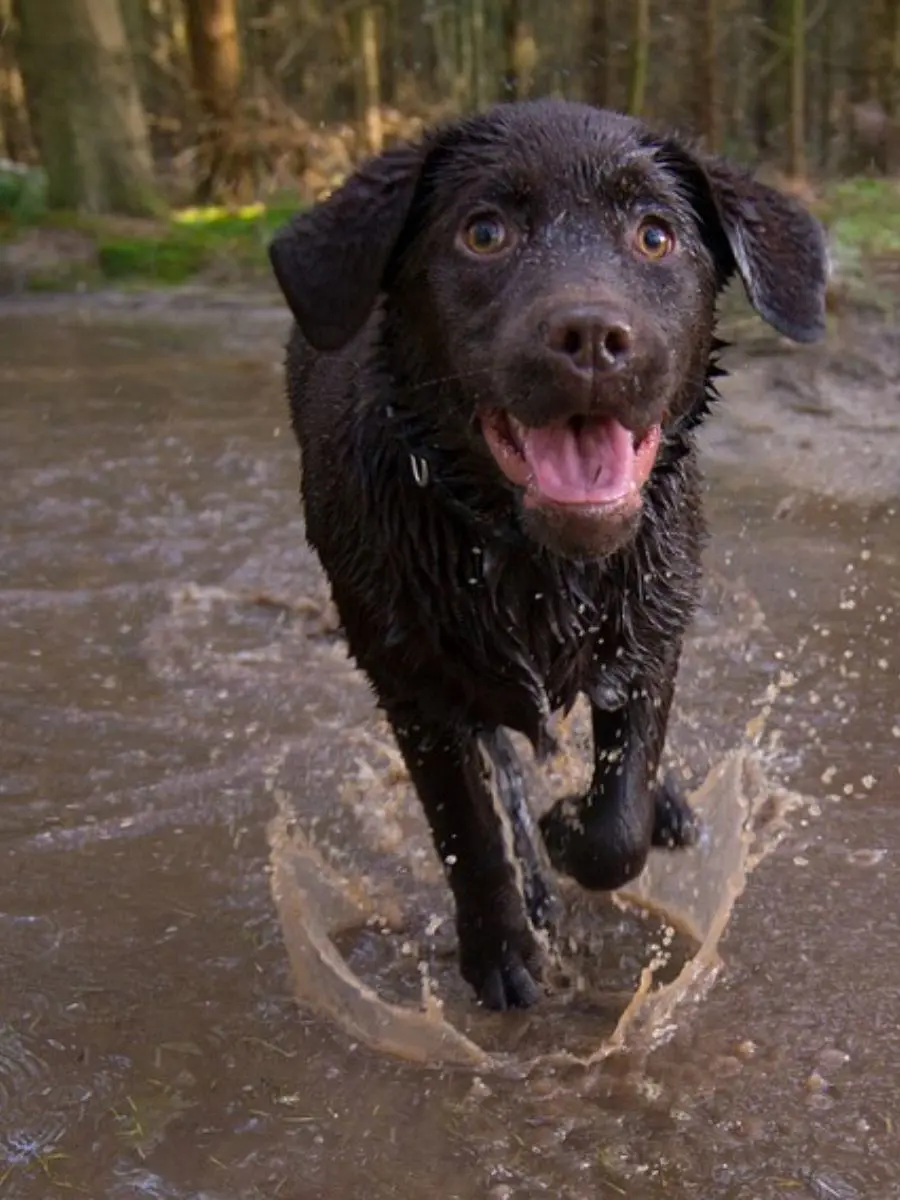
It would be best to delve deep to uncover the wellsprings motivating such acts before canines consume the earth. While occasional intake of terrain fare does no harm, excessive or frequent swallowing may greatly imperil health.
Breaking this pattern requires filling nutritional voids with healthful victuals and ample opportunities to engage the body and mind to elude ennui or unease. Watchful oversight of romps outside, redirection to alternative actions, or diversion from the dirt may also bar hounds from the eating ground.
Such foresight safeguards canines from risk, secures their welfare and frees them from hazardous habits.
Ensure a Balanced Diet
Ensure your dog is on a healthy and balanced diet to avoid nutritional deficits, which may prompt him to eat dirt. Consult your vet on selecting a proper diet specific to your dog's needs, and consider adding supplements to compensate.
Keep your dog on a nutritionally sound diet with all the proper nutrients. He'll be healthy and happy to eat his regular food, thereby decreasing the possibility that he will dirt-eat due to nutritional inadequacies.
Provide Adequate Mental and Physical Stimulation
Bored or sedentary dogs start eating dirt. Make sure the dog gets enough exercise, which would include playing and walking every day to spend that energy.
They can keep themselves engaged in mental activities through interactive games, puzzle toys, or training sessions. An intellectually and physically active dog will be less likely to eat dirt because of boredom or frustration.
Monitor and Supervise Your Dog
Always supervise your dog, particularly in areas where your dog has access to dirt. Limit further exploration of certain areas to play time exclusively with another toy or treat it as a distraction from eating dirt.
Continuous supervision can help limit the issue and prevent encountering dangerous chemicals your dog may attempt to ingest.
Address Anxiety and Stress
In case of ingestion of earth because of stress or anxiety, try to find the root cause. Some causes may be changes in the home, lack of socialization, or separation anxiety.
Consider behavior training, constructing a secure and reassuring environment, or consulting with an experienced dog trainer or behaviorist to help minimize anxiety and end dirt-eating behaviors.
Avoid Harsh Punishments
If your dog is eating dirt, avoid severe punishments, as that would create more anxiety and increase the behavior. Offer some alternatives to eating dirt, like toys or snack food.
Positive reinforcement strategies would help to encourage desired behaviors. By providing a happy, encouraging atmosphere for your dog, he will form much healthier behaviors and have less stress.
Seeking Veterinary Care
If your dog persists in eating dirt or has other general symptoms, such as weight loss, vomiting, diarrhea, or lethargy, then see a vet.
They can do an overall checkup and run some diagnostic tests to find out whether this is due to an existing health problem. Early detection and professional advice are essential in handling health problems and their consequences.
When To See A Veterinarian
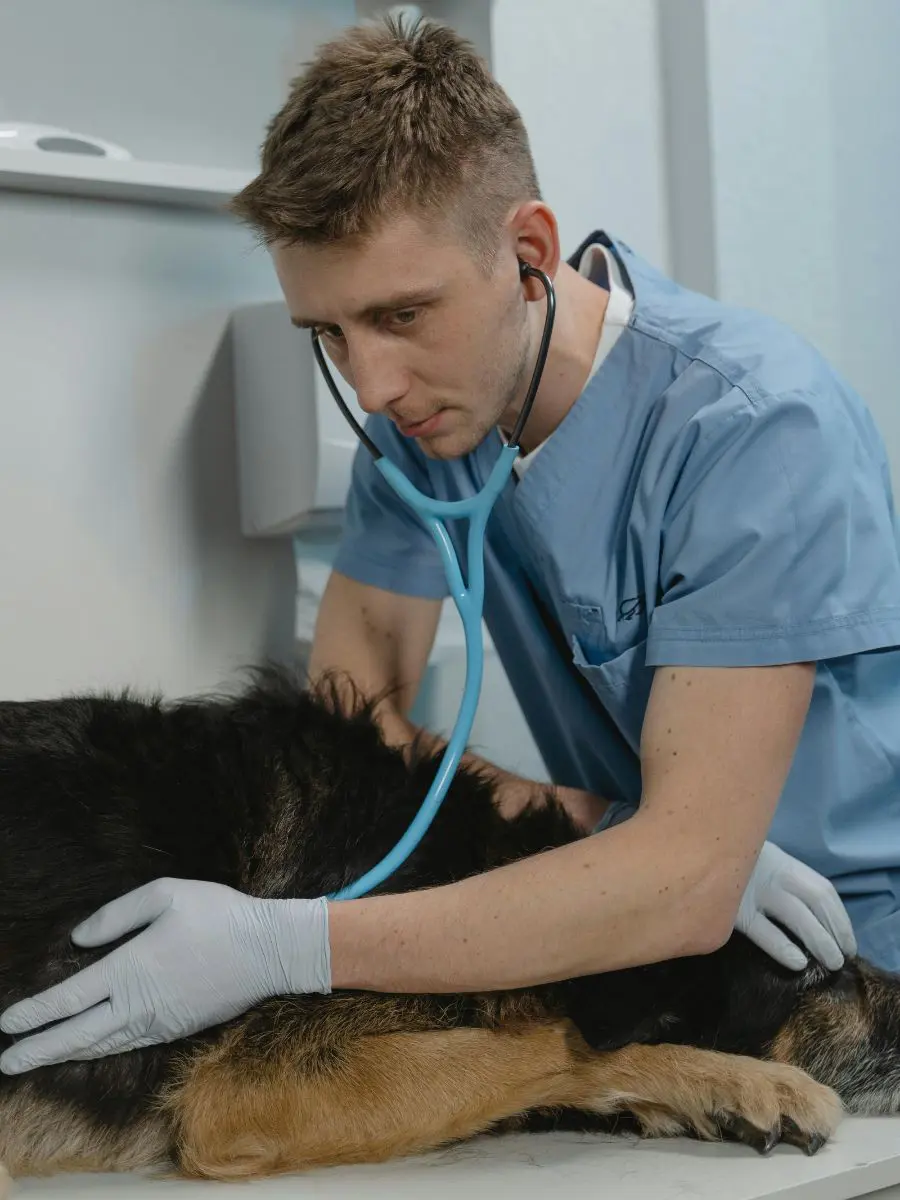
Understand when your companion needs to see a veterinarian regarding this habit of eating dirt in order to maintain his or her health. Although it is not very surprising when it occurs occasionally, its constant or persistent occurrence may well be indicative of some rather profound matters that require the services of professionals.
Therefore, if your dog consumes soil and then gets sick and vomits, has diarrhea, becomes weak and tired, is stressed, or changes behavior in any other way, you should consult with a vet. Moreover, if you feel your dog ate poisonous products or toxic substances or their parts found on the ground, you must take it to the veterinarian to eliminate health risks.
Persistent and Frequent Behavior
If your dog consistently eats dirt, you should consult a veterinarian. A persistent tendency to eat dirt may be a sign of certain behavioral or physiological problems.
A veterinarian will be able to ascertain whether this behavior is more than just one of those weird habits and whether more investigation is necessary to diagnose and treat any underlying illness.
Accompanying Symptoms
If your dog shows other signs beyond dirt eating, such as vomiting, diarrhea, lethargy, or weight loss, contact a veterinarian.
These can be indicative of some medical condition that requires a doctor's diagnosis and treatment and may be able to explain the behavior of dirt eating. Thus, early care by a veterinarian might help resolve a health problem quickly.
Signs of Anxiety or Behavioral Changes
Consult a vet if your pet reveals signs of stress, nervousness, or any other behavioral abnormalities other than dirt-eating. Such changes may suggest that psychological or emotional problems were the cause and, therefore, need to be treated professionally.
A vet will assess the situation and be able to offer some advice on how to treat such behavioral/emotional etiologies of your dog's sickness.
Suspected Toxin Ingestion
In case you suspect that your dog has ingested poisons or hazardous substances from the ground, seek veterinary attention immediately.
Pesticides, poisonous chemicals, or other kinds of contaminants could, therefore, present health hazards. You need to get urgent care from a vet to avert or treat poisoning and ensure that your dog is safe and healthy.
Top Lists


